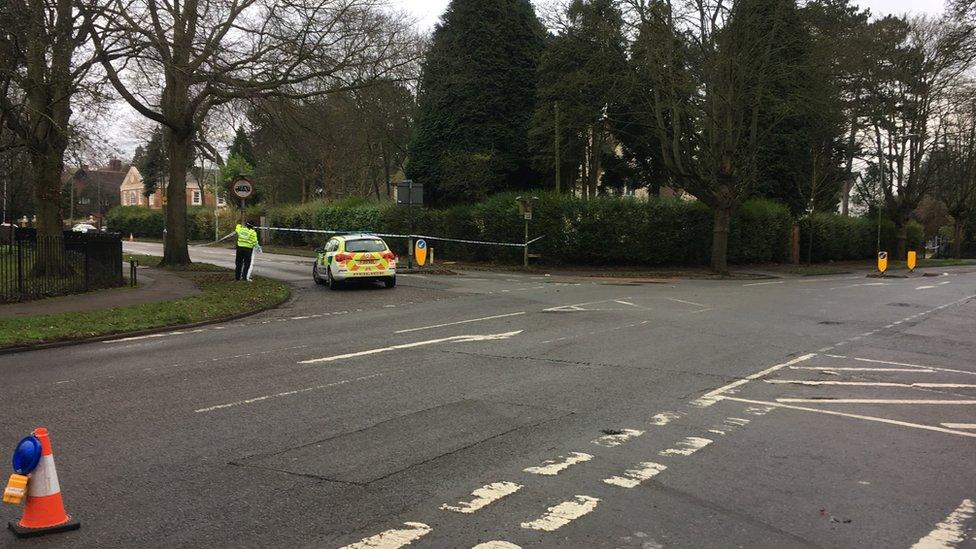Police car deaths prompt investigations
- Published
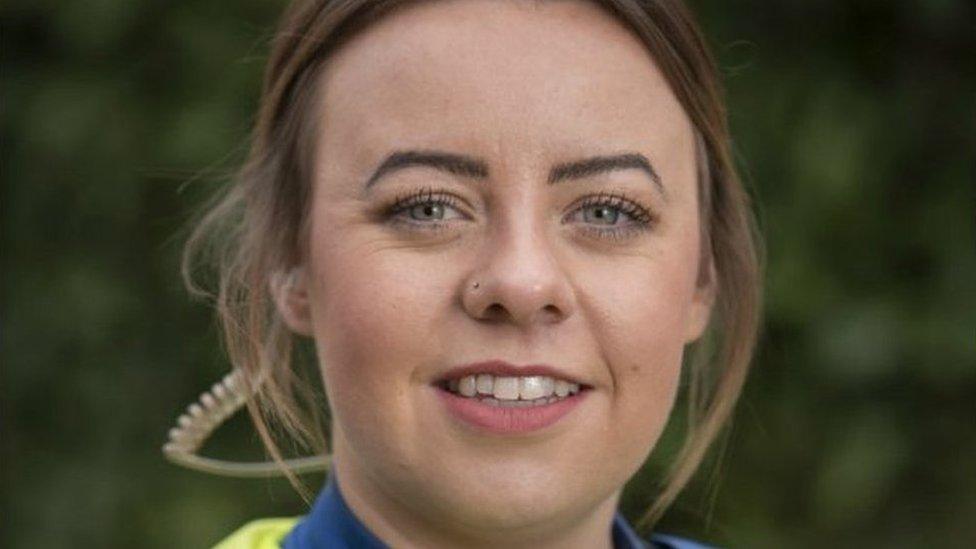
PCSO Holly Burke was off duty when she was hit by a car being pursued by police in Bearwood
Each of the deaths of four people during crashes involving police vehicles is being investigated to see whether there should be improvements in policy and procedure, a watchdog said.
The crashes were in London, the West Midlands, Warwickshire, and Leicester.
Ian Todd of the Independent Office for Police Conduct (IOPC) said each death would be investigated "based on their own unique sets of circumstances".
The AA said the deaths could indicate a rise in the use of vehicles in crime.
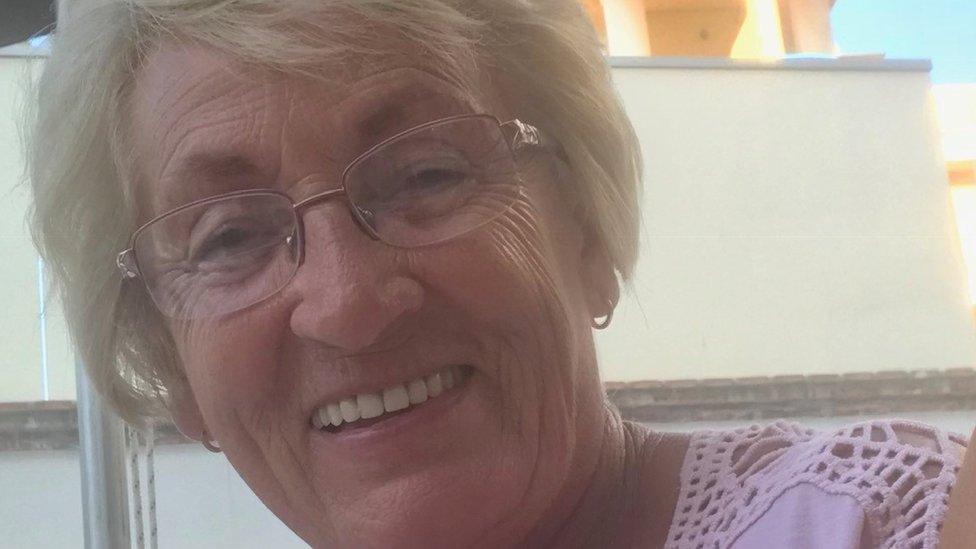
Jessie Whitehead died in hospital after being hit by a police car in Warwickshire
The four people who died in the crashes involving police vehicles are:
Paul Radcliffe, an 18-year-old student, was hit by a car which had earlier failed to stop for police in Oadby, Leicestershire, on Saturday
Off-duty PCSO Holly Burke, 28, was struck by a car being pursued by police in Bearwood, in Sandwell, West Midlands, on Tuesday
A 26-year-old refugee from Eritrea died when she was hit by a 999 response car in Walthamstow on the same day
Jessie Whitehead, 74, was riding a mobility scooter when she was hit by a marked car as it responded to an emergency call in Warwickshire on Wednesday
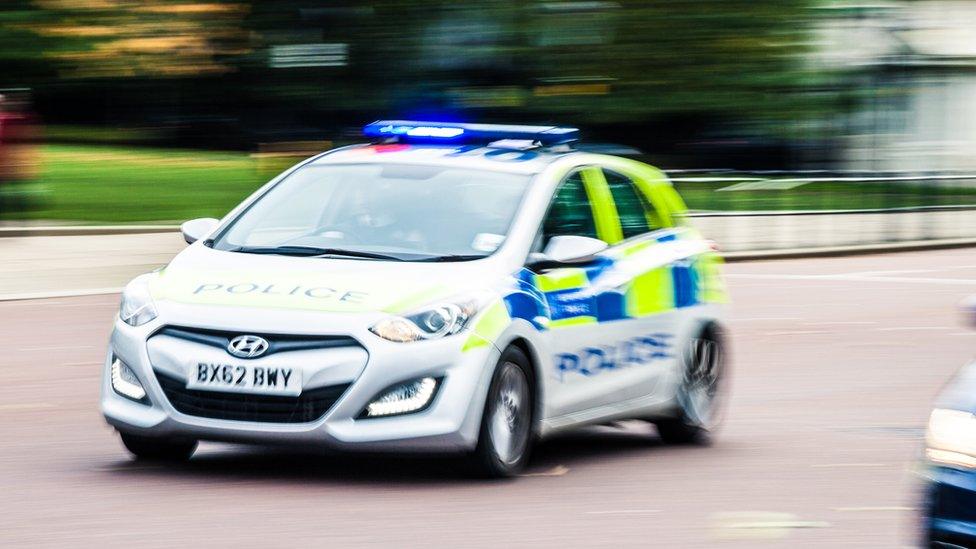
The police watchdog is looking at policies and procedures for emergency and pursuit driving
"The death of even one person on the roads, let alone four in such a short space of time, will be of concern, and we extend our sympathies to the families of those who have been killed and everyone else affected," said Ian Todd, the IOPC deputy director general.
"We will be independently investigating these incidents based on their own unique sets of circumstances.
"Importantly, as well as examining whether the police drivers were suitably trained and followed agreed police policies and procedures we will also look to see if there are changes and improvements which can be made to those procedures to reduce the risks of deaths and serious injuries in the future."
Mr Todd said the IOPC was already working with the National Police Chiefs' Council and College of Policing and had planned to meet road safety organisations to look at concerns from a public perspective.
"We want to focus our work on where we can maximise learning and influence change.
"While there has been spate of road traffic fatalities over the past week, deaths and serious injuries following pursuits and emergency responses are thankfully rare in comparison to the large number of such incidents police are involved in on a daily basis," he said.
Edmund King, president of the AA, said: "The apparent increase in incidents may reflect the growth of the use of vehicles in general crime.
"This is one reason why we call for more cops in cars as they can help to apprehend the culprits of crimes and their presence can act as a deterrent."
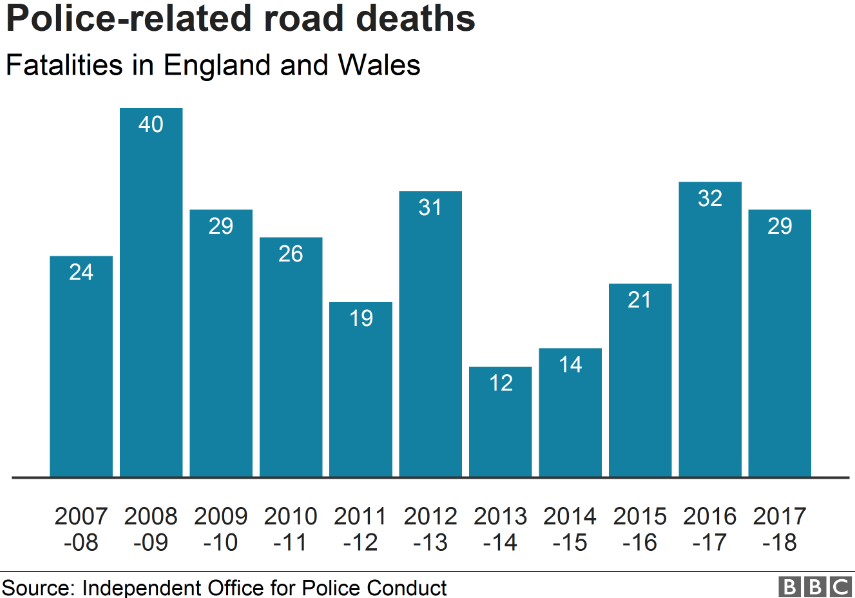
Nick Lloyd, acting head of road safety at the Royal Society for the Prevention of Accidents, said: "It would make a lot of sense for good practice to be shared across all police forces any measures to improve safety rolled out right across forces.
"It's also important to remember how the wider public react to blue lights not just car users but pedestrians and cyclists."
Joshua Harris, from road safety charity Brake, said: "We would encourage police chiefs to review and update their guidance for their officers who are responding to emergency calls or engaged in 'blue light' pursuits."
Correction: This story has been amended to make clear that separate investigations of the four fatalities are being conducted, but the IOPC is not carrying out a wider review of the way police cars are driven during 999 calls and pursuits.
- Published24 January 2019
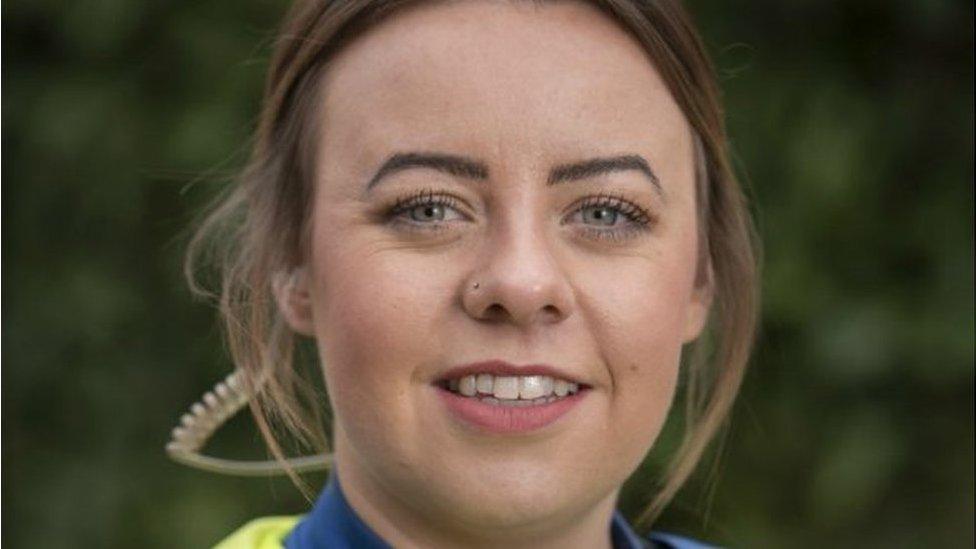
- Published24 January 2019
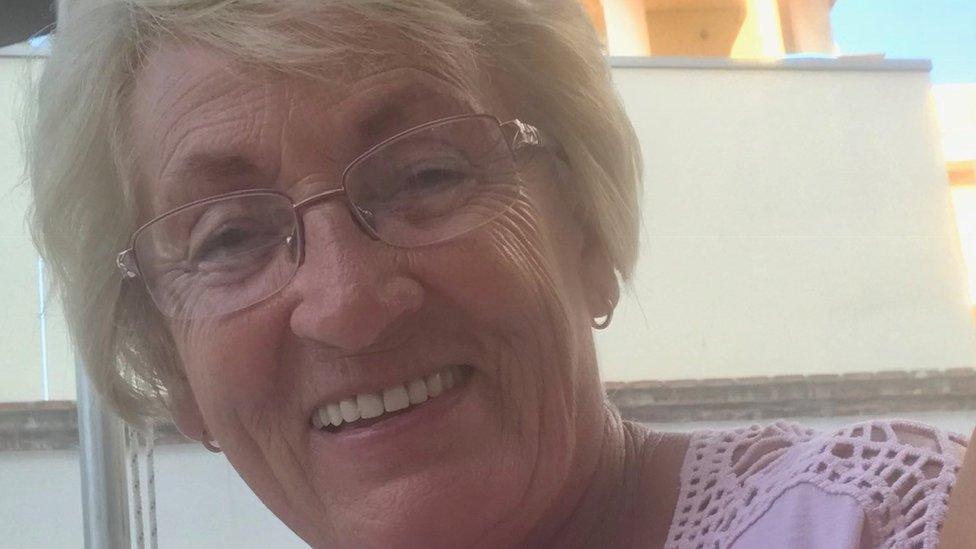
- Published24 January 2019
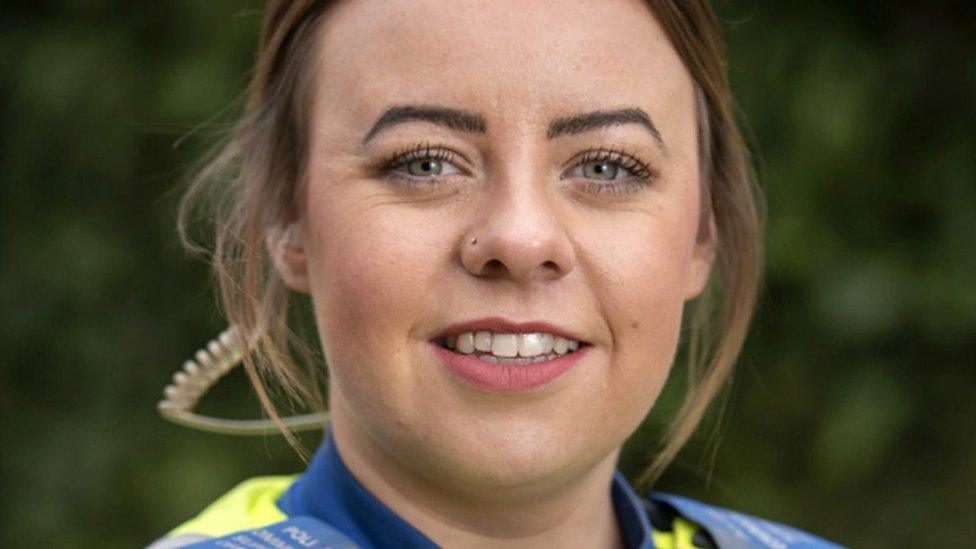
- Published23 January 2019
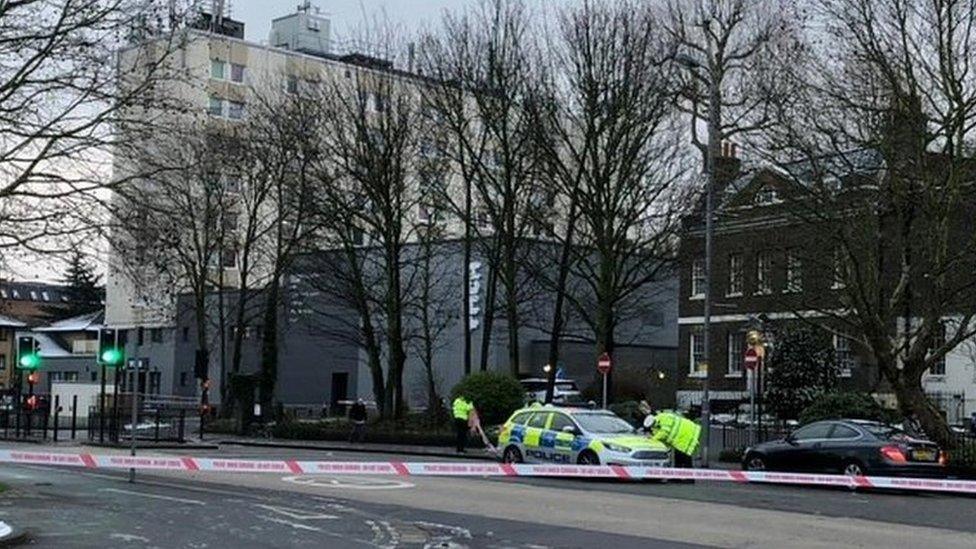
- Published23 January 2019
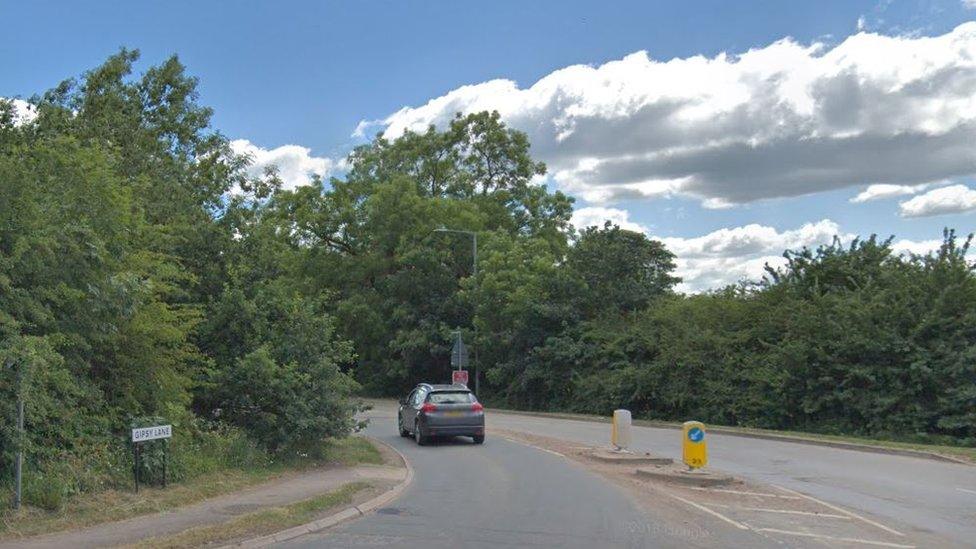
- Published19 January 2019
